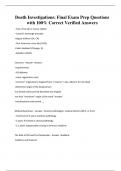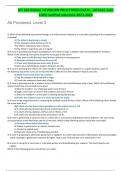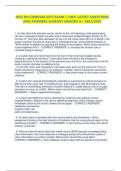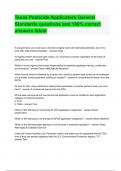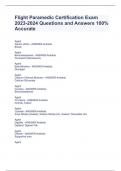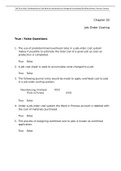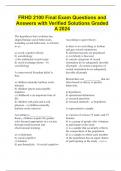Notes for the exam (about previous chapters as well):
- Professor will not ask in the exam:
- Name of different parties
- Names of the presidents/leaders of the political parties
- However, need to know:
- About this parties (history and what is discussed in class about them)
- Name of the leaders of the different governments (6 of them)
- Composition of those governments, as in, the different parties
Class 1 : Introduction
1.1 Federal systems
- Centrifugal federalism =
- It is a federalism that was created from a unitary state which then decentralized
- The direction is away from the center (taking away power from the general, big body)
(US, Switzerland, Canada = centripetal federalism).
- Centripetal federalism =
- Strong federal government and weaker provincial governments
- SO, Classic federations = existing independent entities and work together as a unit
- → Centripetal
- Eg: US, Canada ( <<>> Belgium = Centrifugal)
Belgium gradually developed into federalism → 1 gov + parliament on every level instead of one central
body.
1.2 Belgian federal peculiarities
- BE started out as unitary - decentralization took place (constitutional changes)
- 1993 - Becomes an official federal state with different regions and communities +
bringing more features back to the federal level.
- Federal entities that exist are not historically bound, they don’t have a history in line with
Belgium
- Catalonia: It’s own history existed not in line with Spain
- Consequently, some countries are considered artificial because they have created
their history to seem cohesive
- Example: Belgium
, - Multilingual federation (multi-national?) → increasing complexity
- Eg: multiple media sources and not the same history, perspectives, point of view is being
watched/read by everyone in the same way.
- BE as a nation isn contested - different national projects
- Some feel as if they are part of a more flemish nation project → divided country
1.3 Two types of federated entities
- Belgium has its regions and its communities which overlap
- Even more so in Brussels [independent region].
- → Most peculiar thing about Belgian federalism (also explains why Belgium is such a complex
system) → they have created two types of federated entities.
3 communities
- Flemish community
- French community
- German-speaking community
3 Regions
- Flanders region
- Brussels-Capital region
- Walloon region
Federal Authorities
- King;
- Federal government (Prime Minister, Ministers, Secretaries of State);
- Federal Parliament (Senate and Chamber of Representatives).
Belgium’s governments and parliaments + Distribution of Competences
Governments and Parliaments Distribution of
competences
Name Legislative power Executive power
,Federal Federal Lower house + King + Federal Social security
authorities Parliament senate Government (interpersonal
solidarity), main
Competence: - Text = “ Act” (Prime fiscal policies,
Federal matters minister, justice,
150 seats (89 ministers) police, railway,
Dutch and 61 foreign affairs,
French) defense,
development
cooperation, …
The Flemish Flemish Text= “Decrees” Flemish Competences
community parliament government related to
118 + 6 seats persons:
Competence: education, culture,
Community + Media, tourism,
Regional matters health policy, aid to
persons, child
The French Parliament of the Government of benefits,
Community French speaking Text= “ Decrees” the French international
Community / speaking cooperation
Federation 75+ 19 seats Community / (within the
Wallonia-Brussels Federation borders of the
Wallonia competences),
Brussels
The German Parliament of the Government of
speaking German speaking Text= “Decrees” the German
community community speaking
25 seats community
Flanders Region / / / Competences
related to territory:
Brussels-capital Parliament of Government of Housing policy,
region the Text= ”Decrees” the brussels environment,
Brussels Capital capital region agriculture,
Region 72+17 seats employment,
economy, part of
Walloon region Walloon Government fiscal policy, energy,
parliament Text= “decrees” of the Walloon public works,
region public
75 seats transport, lower
administration,
international
cooperation
(within the
borders of the
competences), ...
- → The Flemish parliament exists out of the Flemish region and the Dutch speaking community -
, they have merged together.
- → When the entities were created there was an unclarity:
- Most Flemish people saw the communities as central
- The French people considered the regions as central.
- Power of Brussels?
Belgium has 4 official language areas and 27 municipalities with language facilities!
- Linguistic territoriality (Dutch, French, German, Bilingual).
- Fixation of language border = 1963
- Exceptions as a source of new conflicts.
Belgium’s 5 elections (though there are 6 governments)
- Federal parliament (Chamber) = 150 seats (89 [Dutch speakers]/61 [French speakers])
→ Division of seats changed: because some people on the Brussels list identified themselves as bilingual.
SO, if you are elected in one of the Flemish provinces you are automatically a part of the Dutch language
group. If you are elected in the Brussels capital, you can choose which language groups you participate in.
- Flemish parliament = 118 + 6 seats → 6 Brussels representatives
- Brussels parliament = 72 [French] + 17 [Dutch] seats
- Walloon parliament = 75 seats
- German-speaking parliament = 25 seats
→ French language community doesn’t have direct election → based on the election of the Walloon
parliament and brussels parliament
SO, [Parliament of the French-speaking community aka Federation Wallonie-Bxl] = 75 (of the Walloon
parliament) + 19 (of the 72 in Brussels parliament)
→ seats = indirect composed/elected.


